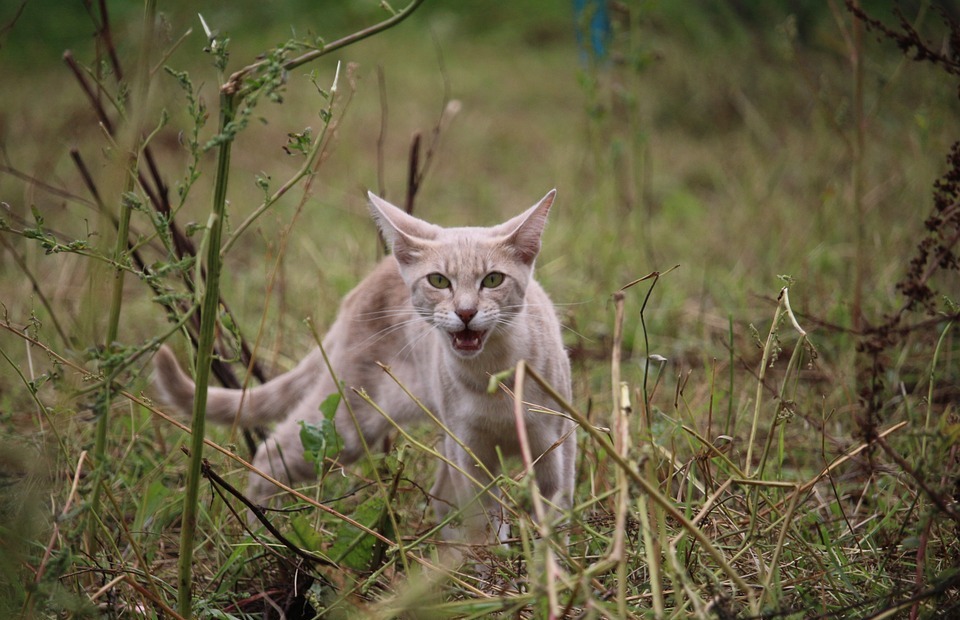This comprehensive guide explores the fascinating relationship between cats and mice, delving into the reasons behind this age-old interaction, the intricacies of the hunting process, and the potential risks and benefits involved. We'll also provide practical advice on managing your cat's hunting behaviour and ensuring their safety.
Part 1: The Predatory Nature of Cats

1.1. Cats as Obligate Carnivores
- Cats are classified as obligate carnivores, meaning their bodies are specifically designed to thrive on a diet of meat.
- Their digestive systems are equipped to break down and absorb nutrients from animal protein, unlike herbivores or omnivores.
- This dietary requirement stems from their evolutionary history, as their wild ancestors relied on hunting for survival.
1.2. The Evolutionary Roots of Cat Predation
- Domestic cats are descendants of wildcats, such as the African wildcat, which evolved as skilled hunters in diverse environments.
- Over millennia, they developed specific adaptations for hunting, including sharp claws, powerful jaws, and keen senses.
- These innate traits are deeply ingrained in their DNA, influencing their behaviour even in domesticated settings.
Part 2: The Irresistible Appeal of Mice

2.1. Mice: A Prime Target for Cats
- Mice, being small, agile, and relatively easy to catch, present an ideal prey for cats.
- Their movements, especially quick darting motions, trigger a cat's hunting instincts, driving them to pursue and capture them.
- The scent of mice, particularly their urine, is also a strong attractant for cats, further stimulating their hunting drive.
2.2. Mice as a Nutritional Source
- Mice offer a rich source of protein, essential for building and maintaining muscle mass in cats.
- They also provide essential fatty acids, vitamins, and minerals that contribute to overall health and well-being.
- While commercial cat food provides a balanced diet, the nutritional value of mice makes them a tempting addition for a cat's natural diet.
Part 3: The Art of the Hunt
3.1. The Stalking Phase
- Cats are meticulous hunters, employing a combination of stealth, patience, and cunning.
- They will often stalk their prey, moving slowly and silently, remaining undetected until the opportune moment.
- Their sharp vision and acute hearing help them track the mouse's movements, anticipating its every move.
3.2. The Ambush and Capture
- Once the cat has positioned itself strategically, it will launch a sudden ambush, using its powerful hind legs to propel itself forward.
- Their sharp claws are deployed to grab and hold the mouse, while their jaws clamp down with a swift and decisive bite.
- The kill is often quick and efficient, thanks to their specialized adaptations for hunting.
3.3. The Playful Aftermath
- Cats may engage in playful behaviour with their captured prey, batting it around or seemingly "torturing" it before consuming it.
- This behaviour is not necessarily cruel but stems from an instinctual need to practice hunting skills and develop their predatory prowess.
- These interactions help sharpen their reflexes, coordination, and overall hunting abilities.
Part 4: The Consumption of Prey
4.1. The Cat's Dietary Needs
- Cats typically consume the entire mouse, including fur, bones, and organs, as these provide a complete range of nutrients.
- Their digestive systems are specifically adapted to process these components, extracting maximum nutrition from their prey.
- While they may leave behind parts like the head or tail, these are generally less appealing and less nutritious.
4.2. The "Present"
- Some cats bring their kill back to their owners, leaving it as a "present" at their feet.
- This behaviour is often interpreted as a sign of affection and trust, as they are sharing their success with their human companions.
- It's a way for them to demonstrate their hunting prowess and provide for their beloved humans.
Part 5: The Potential Risks
5.1. The Danger of Poisoning
- If mice have been exposed to poison, they can pose a serious threat to cats.
- The poison can transfer to the cat through ingestion, potentially leading to severe illness or even death.
- It's crucial to be aware of any potential poisons in your home and to use safe, non-toxic methods for pest control.
5.2. The Threat of Parasites
- Mice can carry various parasites, including fleas, ticks, and intestinal worms, which can be transmitted to cats.
- These parasites can cause discomfort, illness, and even death if left untreated.
- Regular parasite control measures, such as flea and tick treatments and deworming medication, are essential for cats that hunt mice.
5.3. The Risk of Diseases
- Mice can also carry infectious diseases like salmonellosis, leptospirosis, and toxoplasmosis, which can be transmitted to cats through ingestion or contact.
- These diseases can cause a range of symptoms, from mild discomfort to severe illness, requiring veterinary intervention.
- It's important to monitor your cat's health and seek veterinary attention if they show any signs of illness after hunting mice.
Part 6: The Benefits of Cat Predation
6.1. Satisfying Natural Instincts
- Hunting is a natural instinct for cats, providing them with mental and physical stimulation, keeping them active, agile, and sharp.
- It can be a rewarding and fulfilling activity for them, fulfilling their innate drive to stalk, chase, and capture prey.
- This innate behaviour contributes to their overall well-being and mental health.
6.2. Natural Pest Control
- Cats can effectively control mouse populations in and around the home, acting as natural pest control agents.
- Their presence can deter mice from entering your home in the first place, reducing the risk of infestations.
- This natural method of pest control can be more environmentally friendly and humane than conventional methods.
Part 7: Managing Your Cat's Hunting Behaviour
7.1. Indoor Cats: Reducing Exposure
- The safest way to prevent your cat from hunting mice is to keep them indoors, eliminating their exposure to potential hazards and diseases.
- However, indoor cats require enriching activities to satisfy their hunting instincts and prevent boredom and destructive behaviour.
- Providing them with toys that simulate prey, such as feathered wands, laser pointers, and puzzle feeders, can help engage their hunting drive and prevent boredom.
7.2. Outdoor Cats: Taking Precautions
- If your cat has access to the outdoors, it's crucial to take precautions to minimize the risks associated with hunting mice.
- Regularly check for parasites, such as fleas and ticks, and administer appropriate preventative treatments.
- Monitor your cat's health closely and seek veterinary attention if they show any signs of illness or unusual behaviour.
7.3. Deterrent Strategies
- Seal up any gaps or cracks in your home to prevent mice from entering and coming into contact with your cat.
- Store food in airtight containers and clean up spills promptly to eliminate attractants that draw mice.
- Consider using natural deterrents like peppermint oil, citrus peels, or ultrasonic devices to discourage mice from entering your home.
Part 8: Understanding Your Cat's Motivation
- Cats may hunt mice for various reasons, including hunger, boredom, instinctual drive, or a combination of these factors.
- It's important to observe your cat's behaviour and determine their underlying motivation for hunting.
- If they seem to be hunting excessively, showing signs of anxiety, or displaying unusual behaviour, it's essential to consult a veterinarian to rule out any underlying medical conditions.
Part 9: FAQs
9.1. Are all cats attracted to mice?
While most cats are naturally inclined to hunt mice, some may show less interest due to individual temperament, lack of exposure to prey, or specific training.
9.2. Is it always dangerous for cats to eat mice?
While the risk of poisoning, parasites, and diseases exists, it's not always dangerous for cats to eat mice. However, it's important to be aware of these risks and take precautions to minimize them.
9.3. How can I effectively deter my cat from hunting mice?
Keeping your cat indoors, providing enriching activities, and using deterrents to discourage mice from your home can help reduce the likelihood of your cat hunting mice.
9.4. What should I do if I find a dead mouse in my house?
Dispose of the mouse safely using a sealed plastic bag and dispose of it according to local regulations. Thoroughly clean the area where the mouse was found with disinfectant to prevent the spread of disease.
9.5. Are all cats good hunters?
While cats are natural hunters, their hunting abilities can vary depending on individual temperament, experience, and environment. Some cats may be more skilled hunters than others.
9.6. Can I train my cat to hunt mice?
While you can't train your cat to hunt mice specifically, you can encourage their natural instincts by providing them with opportunities to play and engage in prey-like activities.
9.7. What should I do if my cat shows signs of illness after hunting a mouse?
If your cat shows any signs of illness, such as vomiting, diarrhoea, lethargy, or loss of appetite, seek veterinary attention immediately.
9.8. How can I ensure my cat's safety when hunting mice?
Keeping your cat indoors, providing enriching activities, and using deterrents to minimize the risk of exposure to mice can help ensure your cat's safety.
9.9. Is there anything else I can do to help my cat satisfy its hunting instincts?
Consider providing your cat with interactive toys, puzzle feeders, and scratching posts to provide mental and physical stimulation and satisfy their innate drive to hunt and explore.
Everyone is watching
-

Are Cat Ribs Flexible? Understanding Their Anatomy
CATS & KITTENSThis article delves into the fascinating world of feline anatomy, exploring the flexibility of cat ribs and ho...
-

Can Cats Eat Bananas? (Everything You Need to Know)
CATS & KITTENSThis article dives into the intriguing question of whether cats can safely enjoy the sweet, yellow fruit, bana...
-

Cat Lifespan: How Long Do Cats Live?
CATS & KITTENSThis comprehensive guide explores the factors influencing the lifespan of our feline companions, providing ins...
-

Can Cats Get COVID-19? What You Need to Know
CATS & KITTENSThis article will delve into the fascinating world of feline COVID-19 susceptibility. We'll explore whether ca...
-

Can Cats Eat Eggs? A Complete Guide to Egg Safety for Your Feline Friend
CATS & KITTENSWhen it comes to treating our furry companions, we all want to ensure we're doing what's best for them. Eggs...
